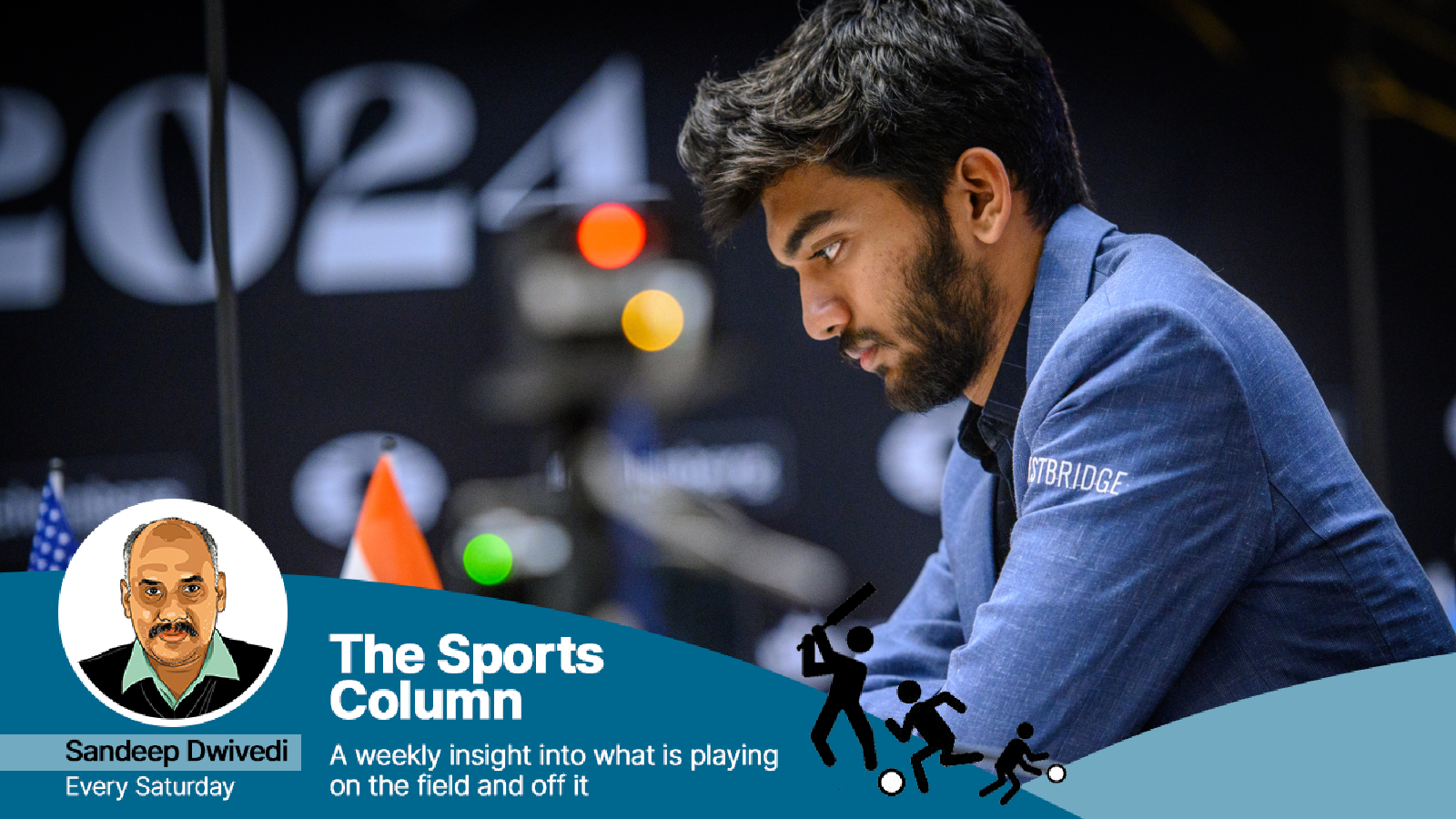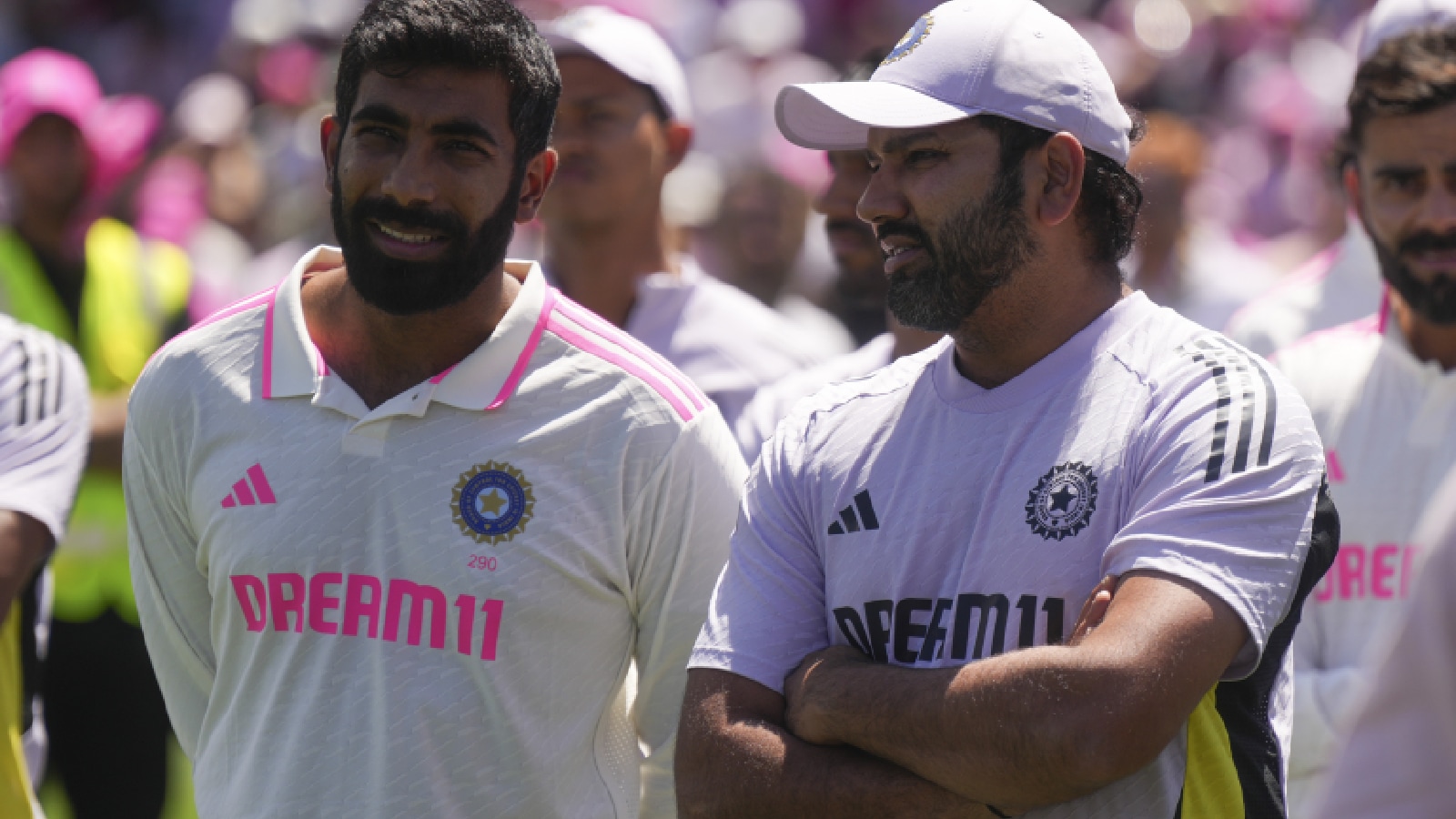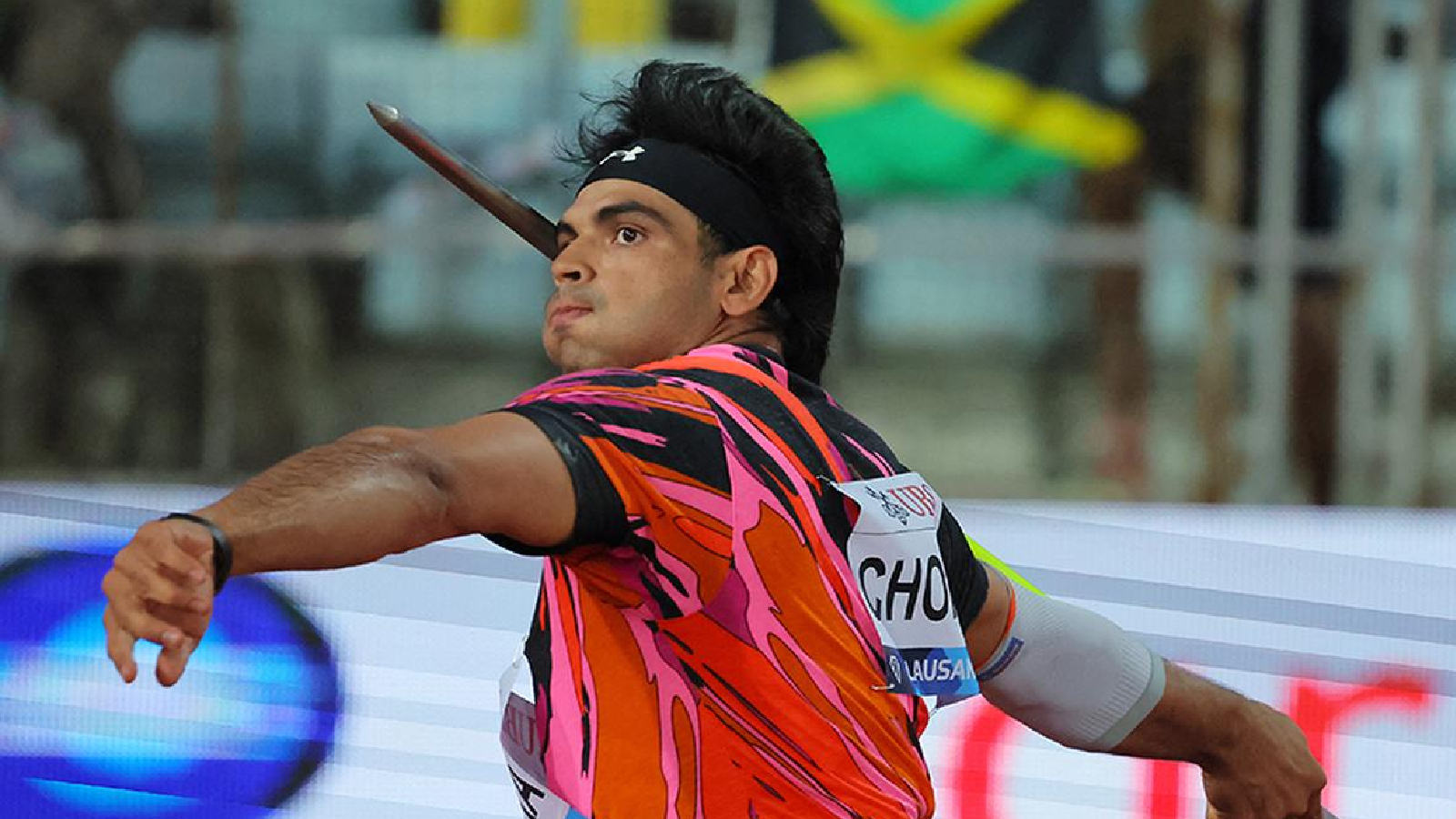There was this moment at the early morning grand reception at the Chennai airport when D Gukesh acted his age. It also showed that the shy 17-year-old Candidate champion wasn’t used to intrusive attention and can do with some help. Yellow ceremonial turban, rose-petal garland around his neck and school children wearing his mask cheering – Gukesh looked rather uncomfortable crossing an important milestone in mass popularity scale.
While addressing an impromptu press conference, Gukesh, from the corner of his eye, would spot his mother. Instinctively he would turn his back to the strangers who were asking him questions that he had been answering for the last 48 hours. He was like a child running into the arms of his mother after the first day at school. Back among his people, Gukesh was beaming.
India’s teen prodigies, so used to the silence of match venues and at peace with the lonely world of a professional chess player, are now venturing into the din and frenzy of an Indian fan zone. With the title contest – Gukesh vs China’s Ding Liren – expected to be hosted by India, the chess popularity spike threatens to puncture the roof and take on the shape of hysteria. Sino-Indian war references are also expected to be used to raise the temperature around the contest.
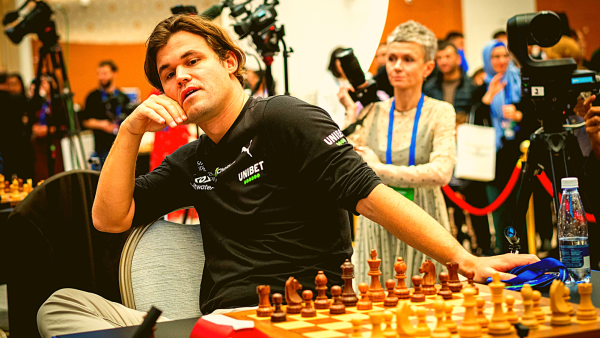
Historically, chess is guilty of putting its young under the blinding spotlight. Most fail to take the heat but for a few like Norway’s Magnus Carlsen it can be the sunlight that ensures their healthy growth.
At 13, Carlsen was the world’s youngest GM, at that age he had drawn a game against Garry Kasparov. He went on to win world titles in every possible format, each at least five times. No one has ever reached his peak Elo rating of 2882.
At 33, the game has bestowed extra-constitutional powers on him. If the chess world was a board of 64 squares, Carlsen is the piece that outranks even the King. India isn’t Norway but Carlsen’s template of handling success, like his game, is universal.
At the airport, a reporter would ask the mother about their residential address, and she would politely decline. In days to come more such requests would be floated. There would be those in sharp suits with cheques, ones wearing white kurta pyjamas with an agenda and agents volunteering to take away all his headache for a 10 percent commission. Gukesh needs to be kept away from these conversations.
A book on Carlsen’s early life written by his first coach and family friend Simen Agdestein is a must-read for India’s young stars and their families. Called How Magnus Carlsen Became the Youngest Chess Grandmaster in the World, it is about a fun-loving Norwegian chess wizard, with a sense of humour, who hopscotched to chess greatness.
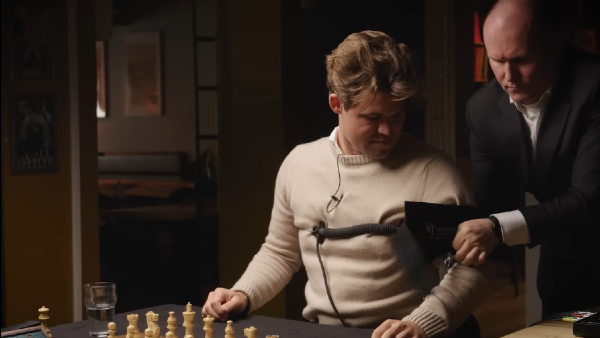
He also had, according to Agdestein, the unique ‘Norwegian approach’. He explains: “I think almost any foreigner coming to Norway would be struck by the lack of discipline in Norwegian culture, but we do actually have some fantastic athletes around here … With a talent like Magnus’ I think one should be very careful not to try to force anything upon him. The job of those around him should simply be to tend to the garden and let the plant grow freely.”
Carlsen, till date, has insisted that while his father Henrik would be his travelling constant companion, there was never any pressure on him to win. He was allowed to read Donald Duck comics and on match day his father would play football with him for a couple of hours. Even now his match day routine is not too different. Taking walks, watching last night’s NBA game, having an extra large omelette for lunch and Carlsen is ready for battle.
Gukesh can also learn from the champion, the art of shutting the mind to outside noise. When Carlsen was 11, his father would take him to play this very competitive tournament at a certain cafe in Bergen, a Norwegian city by the sea. There was no age restriction at this unusual chess event. The book paints a vivid picture. “As it grew late the playing site began to fill with smoke and noise, but this didn’t appear to bother Magnus.” In that noisy, hazy and spirited atmosphere, Carlsen went on to beat a Swedish GM.
In a recent interview, the star spoke about the importance of family members. He says it’s only them who genuinely care about you. He was speaking by experience. Magnus has three sisters, one elder to him. Just to get his globe-trotting son a feel of family togetherness, father Henrick once sold his car, put his house on rent and packed everyone in a mini-van for a Europe tour. The girls – aged 6, 8 and 14 – took a break from school and followed their brother on the chess circuit. It was an adventure vacation.
Though he hated it back then, these trips were also about the chess-obsessed child’s cultural exposure. Years later Carlsen, in the cerebral podcast with noted Russian American scientist Lex Fridman, would say that his father “taught me to be curious about the world and my general education was about knowing about the world around, the history and society.”
The enigmatic chess champion also shared his reason for pursuing chess. This was an important answer since Carlsen is a rare sportsman who isn’t chasing titles or driven to be the GOAT. In the book, coach Agdestein had spoken about his student’s true aim back in the day. “It is to master the game and develop as a player – besides the obvious desire to continue to enjoy playing chess”.
More than two decades later, what has changed is Carlsen’s articulation. The goals are more or less the same. Fridman asks him about his beautiful moments on board and the legend talks about the dream scenario of managing to get “harmony on the board” with “pieces working together to
protect each other” and “no sub-optimal pieces” on the board.
Chess often gets used as a metaphor for life. Gukesh can hope for similar harmony of pieces on the board and his life that is soon to get hectic.
Send your feedback to sandydwivedi@gmail.com
I’m Manas Ranjan Sahoo: Founder of “Webtirety Software”. I’m a Full-time Software Professional and an aspiring entrepreneur, dedicated to growing this platform as large as possible. I love to Write Blogs on Software, Mobile applications, Web Technology, eCommerce, SEO, and about My experience with Life.


